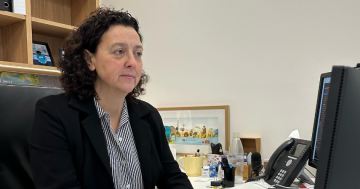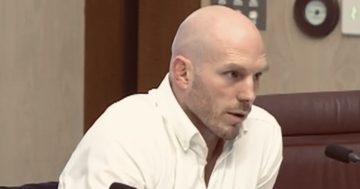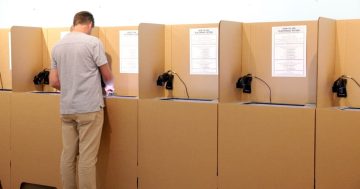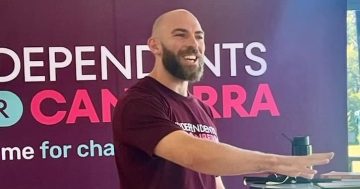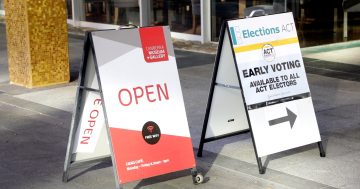
There is a now a long list of candidates announced for the 2016 ACT election. These people are about to put themselves through a very complicated and drawn out job application. If they pass this six-month interview process, they will be given a four-year contract to be an ACT politician. Then they have the option of applying all over again through the same long process in four years’ time. Fun!
Each successful candidate will be bestowed a range of privileges to assist them in their complicated role. But – and this is the point of this article – sadly, along with those rightfully earned privileges, some politicians assume they have extra, special rights and privileges. They start to take too much for granted and in the process become removed from the electorate.
This perception of politicians being disconnected from the realities of the electorate exists not just here in Canberra, or just in Australia, but has become the norm internationally. It is a very serious issue that remains unaddressed by all of us with a commitment to democracy.
Having had a range of experiences in political advocacy over many decades, I have observed how most people, once elected, then transform into an occupant of that rarefied world occupied by politicians, advisers and chief bureaucrats.
It would be tempting here to mention helicopters and flights to Geelong but that would be straying from my focus on ACT politicians.
Take for example the recent events whereby an ACT minister’s husband was a lobbyist for a developer – and then resigned following some pressure through the press.
The stunner was that the minister and her chief continued to state that there was no potential conflict. There’s an alternative reality there somewhere, a parallel universe.
Even when asked about taking a positive step to open up better consultations with the residents around Manuka, the reply was that that this would not be necessary as there were enough consultations already. What?
Hundreds of residents had just filled a meeting to protest about the Manuka proposal. All but a handful were there to vent their displeasure – or more likely their anger. Surely this would be a sign to any aware politician that something was wrong.
One wonders why local representatives do not just sit in on the occasional community or neighbourhood meeting instead of always waiting to be invited? After all, they are residents and surely it is not that difficult to retain that local day-to-day connection.
I worry that some local politicians see themselves as having been elevated to an almost royal status – and expect the rest to behave accordingly. Lucky us!

The local community association formally reaches out to the politicians on a regular basis to have them attend meetings. Some politicians know how to approach such meetings. Others just do not seem to get it, namely, that this is a chance to sit and talk with their locals, possibly neighbours, and as such would share some of the same aspirations.
Then there was a now infamous event concerning a local politician.
At the community meeting a question was raised about the future of the Dickson Parklands/Section 70. The politician looked at us and asked where was this place? Someone quietly informed her that she was standing on it. There were some strange looks as we realised that someone was not across this local burning issue and had not done her homework. (Maybe her dog ate it?)
Later she was asked about consultations with community. She stated that the government considered community groups to be dominated by older males. We looked around the room at each other (about 30 people) and realised that the gender balance was about even and the average age might be as high as 50, give or take.
She did not observe how people reacted to such an ageist remark. Instead, she just carried on talking. And this is the government that boasts on number plates that Canberra is an ‘age-friendly city’ (whatever that means).
After decades of contact with politicians, I can count on one hand those who remained locally focused and did not get carried away with privileges, and who remained true to core beliefs.
Sadly I could list many who have lived for the experience of flying higher and higher – not realising they were getting too close to the sun.

What to do?
It is an election year and electors would like to think that it is a good time to elect a peer, a neighbour, a local person, who will then keep in touch and be able to represent the diversity of views within this community.
There’s one thing for certain. We do not need any more ACT politicians with a ‘higher agenda’ (linked to the usual lobbyists) and who approach their electors as if they are lesser beings.
We have too many of the latter politicians already. They are above us there somewhere floating around the sun.
Instead, it would be nice next time around to elect more of the former, those who stay locally focussed and with whom you could be relaxed to chat over coffee.
Or would that be a bribe?
—————————–
and for a tangental piece of music:
One of Mary Gauthier’s many beautiful songs – How You Learn To Live Alone













